
The Rural Institute for Inclusive Communities established the Community Investment Fund (CIF)to support innovative projects or programs that help Montanans with disabilities live, learn, work and play alongside people without disabilities. This year Children's Special Health Services matched Rural Institute funds so awards were given to three projects: Kalispell Mosaic Mural, Pumpkins for a Cause and BASE Film Making Extravaganza.
Read More >
Iowa's UCEDD Promotes Reading and Disability Representation as It Turns 50
Founded in 1972, the Center for Disabilities and Development (CDD/Iowa's UCEDD) is celebrating its 50th anniversary this year. As part of the celebration, the UCEDD is making a contribution to the Disability Resource Library (DRL) at CDD. The UCEDD will purchase a series of books for the DRL that promote reading and disability representation in books.
Read More >
Request for Applications- Equity, Diversity, and Inclusion Coaches
The UCEDD Resource Center (URC) launched a multi-pronged technical assistance initiative to support UCEDDs in implementing the Equity, Diversity, and Inclusion Action Plan. In continuation of this initiative, the URC is seeking applications from UCEDD leaders across the AUCD network to serve as Equity, Diversity, and Inclusion coaches. Coaches may provide individualized coaching to network members, respond to rapid response requests, and support implementation of the technical assistance initiative by presenting at webinars and supporting content of the ED&I Action Plan Implementation groups.
Read More >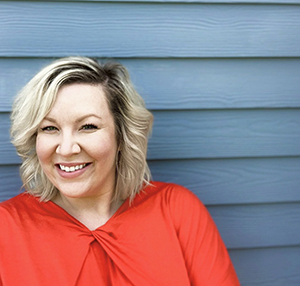
Dr. Erin Vinoski Thomas Named Associate Director of CLD
Dr. Erin Vinoski Thomas has been named as the Center for Leadership in Disability (CLD)'s new Associate Director. Dr. Vinoski Thomas also currently serves as the CLD�s Director of Health and Wellness and a Research Assistant Professor within Georgia State University�s School of Public Health.
Read More >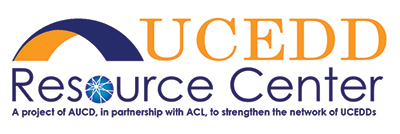
2020-2021 UCEDD Resource Center (URC) Evaluation Report
In 2020-2021, the UCEDD Resource Center (URC) accomplished all our goals from the prior year. The first full year of website analytics data from all three URC websites has been leveraged for strategic decision-making. An accessibility evaluation for online communications was completed in August 2021 and will inform improvements to be implemented in the coming year. The global survey was adapted into Spanish and plain language to ensure linguistic accessibility in our data collection process.
Read More >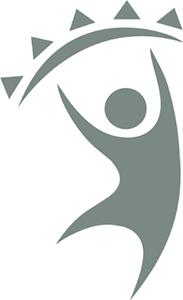
RENEW Expands in New Hampshire!
The Center for RENEW Implementation has received a grant from the NH Charitable Foundation to provide the RENEW (Resilience, Empowerment, and Natural Supports for Education and Work) model in New Hampshire to youth and young adults involved in the juvenile justice system or who are in residential treatment.
Read More >
KU and UNC Collaborate on Propel Project
Launched in 2020, the Propel Project will examine the impact of a comprehensive intervention combining the Self-Determined Learning Model of Instruction and Peer Supports, on academic, social, and functional outcomes for autistic secondary students in inclusive general education classrooms. This collaboration between the University of Kansas (KU) and the University of North Carolina (UNC) is led by KU Center on Developmental Disabilities Director (KUCDD) Karrie A. Shogren, KU Juniper Gardens Children's Project Director Brian Boyd, KUCDD Assistant Research Professor Sheida K. Raley, and UNC Associate Professor Kara Hume.
Read More >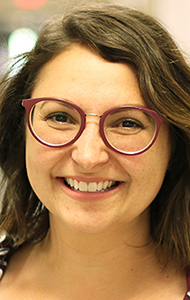
Excellence in Autism Support Award Goes to Delaware UCEDD Research Manager
For her "Outstanding Research on Autism in Higher Education," Jessica Monahan, research manager with the University of Delaware Center for Disabilities Studies' Spectrum Scholars program, has won an inaugural Excellence in Autism Support award from the College Autism Network.
Read More >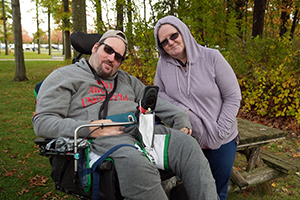
It's Up to You: Reaching Out to DSPs
Funded by AUCD, the MN UCEDD, in partnership with the National Alliance for Direct Support Professionals, has produced a series of short public service announcements (PSAs) of direct support professionals encouraging their colleagues to get vaccinated against COVID-19, an urgent need.
Read More >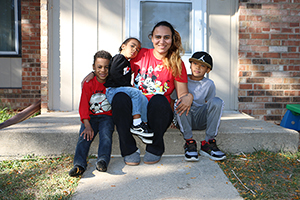
Wisconsin UCEDD SaferKids Program
Benji is a bright-eyed and energetic six-year-old. He and his two brothers keep their mom, constantly on her toes. But Benji, who was recently diagnosed with autism, was exhibiting some behaviors that were leaving his mother fearful for his safety. While at the Waisman Center Benji's mother mentioned her concerns to one of the clinic's family navigators. That's when she was told about the Waisman Center's SafterKids program.
Read More >